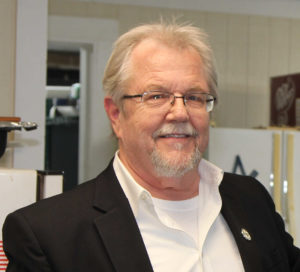
Gary Cook
The role of the Past Worshipful Master (often simply referred to as the Past Master) in a Masonic lodge is one of honor and continued service. While the specific duties can vary depending on the lodge and jurisdiction, here are some general principles and responsibilities typically associated with the role of a Past Worshipful Master:
Principal Duties of a Past Worshipful Master:
- Advisor and Mentor:
- Guidance to Current Officers: The Past Master often serves as a mentor to the current Worshipful Master and other lodge officers, providing advice based on experience and knowledge.
- Training and Development: They may assist in training new officers and helping them understand their roles and responsibilities.
- Ritual and Ceremony Support:
- Ritual Proficiency: Past Masters are often well-versed in Masonic rituals and ceremonies. They may be called upon to perform or assist with specific parts of the ritual when needed.
- Ceremonial Roles: They may take on significant roles during installations, dedications, and other important Masonic ceremonies.
- Leadership and Oversight:
- Committee Involvement: Past Masters often serve on various committees within the lodge, such as the finance committee, membership committee, or ritual committee, leveraging their experience for the benefit of the lodge.
- Special Projects: They may lead or participate in special projects, events, or initiatives that support the lodge’s goals and activities.
- Custodian of Tradition:
- Historical Knowledge: As custodians of the lodge’s traditions and history, Past Masters help ensure that the lodge maintains its heritage and adheres to its established customs and practices.
- Continuity: They provide continuity and stability, helping to bridge the gap between past and present lodge practices.
- Ambassadorial Role:
- Representing the Lodge: Past Masters often represent the lodge at district, regional, or Grand Lodge events, maintaining relationships with other lodges and Masonic bodies.
- Community Engagement: They may also engage with the broader community, representing the lodge in charitable activities, public events, and inter-lodge communications.
- Conflict Resolution:
- Mediation: In cases of internal conflict or disputes within the lodge, Past Masters can serve as mediators, offering impartial advice and solutions to maintain harmony and unity.
- Supporting New Initiatives:
- Innovation: While upholding tradition, Past Masters also support the lodge’s efforts to innovate and adapt to changing circumstances, ensuring the lodge remains relevant and vibrant.
- Recognition and Honors:
- Awarding Honors: Past Masters may play a role in recognizing and awarding honors to deserving members, ensuring that contributions to the lodge are acknowledged and appreciated.
Importance of the Past Master Role:
- Experience: Past Masters bring a wealth of experience and knowledge, which is invaluable to the effective operation and governance of the lodge.
- Leadership: Their leadership continues to shape the lodge’s direction and influence its success.
- Stability: Their ongoing involvement helps ensure stability and continuity, which is essential for the lodge’s long-term health and growth.
While Past Masters no longer hold the primary leadership position, their role remains crucial in guiding, supporting, and mentoring current and future leaders of the lodge. Their wisdom, experience, and commitment to Masonic principles significantly contribute to the lodge’s ongoing success and adherence to Masonic traditions.
